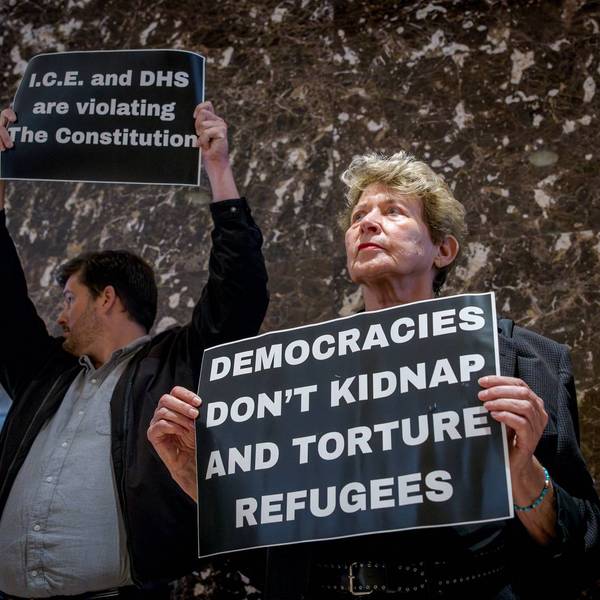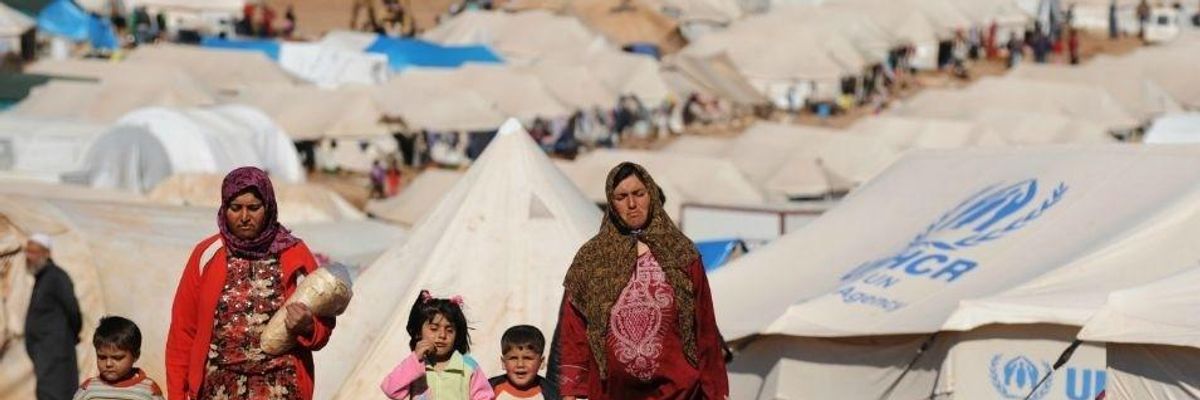A new international report on the health challenges of migrants and refugees upends the popular belief that people who travel to industrialized countries in Europe and elsewhere pose a public health risk for their host countries--confirming that in fact, the opposite is true.
"As migrants and refugees become more vulnerable than the host population to the risk of developing both noncommunicable and communicable diseases, it is necessary that they receive timely access to quality health services, as everyone else." --Dr. Zsuzsanna Jakab, WHO
In the first report of its kind, the World Health Organization (WHO) on Monday revealed that refugees are likely to be in good overall health when they leave their home countries, but are put at risk for infectious and chronic diseases in their new homes--where quality and affordable healthcare is often unavailable to them.
Host countries must work "to protect" migrants from the heath risks they encounter after traveling to their new homes, the report said.
"Refugees and migrants are potentially at greater risk of developing infectious diseases because of their exposure to infections, lack of access to health care, interrupted care, and poor living conditions during the migration process," WHO reported.
As refugees and migrants arrive in Western countries, they enter societies in which they're subject to a new form of inequality--where some of the world's strongest healthcare is offered to the local population but is often kept out of reach for newcomers.
Living in conditions of poverty for long periods of time, becoming less physically active, and consuming less healthy food than that which was available to them in their home countries all puts migrants at greater risk for heart disease, stroke, and cancer after they've arrived in their host countries, according to WHO.
Meanwhile, the organization said, "despite the widespread assumption to the contrary, there is only a very low risk of refugees and migrants transmitting communicable diseases to their host population."
WHO also reported that a "significant proportion" of refugees who are HIV+ became infected with the virus after entering their new countries, that migrants are far more likely to suffer work-related injuries than non-migrant workers, and that depression and anxiety is prevalent in newly-arrived refugee and migrant communities.
The report called on governments in the U.K., Germany, and other countries with high refugee populations to ensure that quality healthcare is affordable and linguistically accessible to refugees.
"As migrants and refugees become more vulnerable than the host population to the risk of developing both noncommunicable and communicable diseases, it is necessary that they receive timely access to quality health services, as everyone else," said Dr. Zsuzsanna Jakab, the organization's regional director for Europe. "This is the best way to save lives and cut treatment costs, as well as protect the health of the resident citizens."




